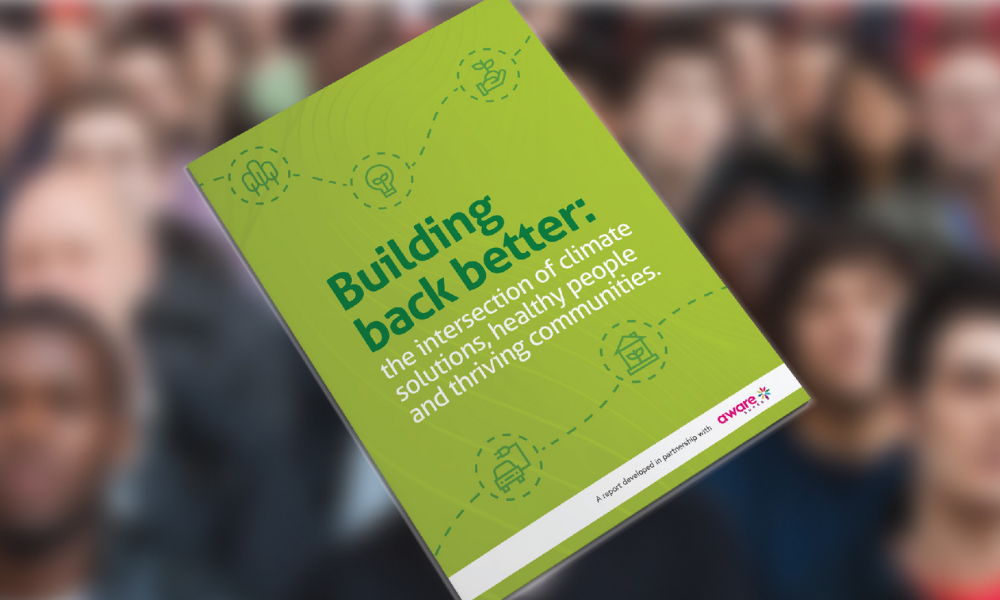
HR leaders have a key role in moving Australia to a thriving, low-carbon economy, says a new report

It’s not often you read a publication about climate change that leaves you feeling optimistic about the future. But a new report commissioned by Aware Super does precisely that.
Building Back Better: The Intersection of Climate Solutions, Healthy People and Thriving Communities by leading Australian social researcher Dr Rebecca Huntley looks at how tackling climate change is not simply compatible with economic recovery but at its very heart.
And HR leaders have a pivotal role to play in amplifying employees’ concerns, ideas and needs around climate solutions.
The fact Australia’s second largest industry super fund commissioned the document is significant. As the report stresses, businesses play an important part in driving change, and super funds like Aware Super are at the forefront. Given their substantial investments in domestic assets, they can help – indeed are helping - accelerate our post-COVID economic recovery in a way that speeds up the transition to a low-carbon future.
Debra Mika, Acting Group Executive – Member Growth at Aware Super explains, "The themes outlined in this report are not only central to Aware Super, but are far reaching in their potential to shape how Australia builds back better. We believe tackling climate change is not only critical to ensure a strong economy in the future, but it can also open up valuable investment opportunities to benefit Aware Super members.”
The report pinpoints three major policy areas to build back better: climate change solutions, security and inclusion, and health and wellbeing. It looks at the opportunities for new jobs in the green economy, the role of renewable energy in building healthier and more cost-effective homes, and how the transition to a low-carbon future will bring about greater physical and mental wellbeing. Behind it all is an irrefutable truth: the momentum is building, more powerfully than ever, to find solutions. That is reflected in the diversity of voices in the report; it’s not just the energy policy experts and scientists any longer, but business and community leaders, trade unions, investors and policy-makers.
Australia is uniquely positioned to lead the way towards a prosperous low-carbon world thanks to our proximity to energy-hungry emerging economies, enormous amounts of land, sun, wind and our energy expertise. But we have to act now.
An increasing number of Australians – 79% according to 2020 stats – are concerned about climate change. “The research shows the best way to deal with climate anxiety is to do things with other people,” says Dr Huntley. “One of the best ways to do that is through the workplace. We are all engaged with it, it’s an easy, effective community around which to base action that is place-based, profession-based or corporate identity based.”
HR is in a particularly powerful position to kick off these conversations at work. Dr Huntley urges HR leaders and the wider C-suite to read the report and open dialogue with employees around ways their business can de-carbonise and contribute to broader climate goals.
For younger workers, it’s an especially important conversation.
“Climate change is a priority of the next generation, it’s something CEOs are hearing about from various parts of the C-suite, including HR. Only 1% of Australians under-25 believe climate change is not happening compared to 9% of the broader community, and of those young people nearly 45% are alarmed about climate change. Mental health, climate change and housing affordability are their top three concerns.”
The report ends with ways we as consumers, communities, employees and leaders can continue to shape our new reality. Not just to survive, but to thrive.
Employees can: ask employers to do an environmental audit of the business with a commitment to being carbon-neutral or move to 100% renewable energy by 2025; work through peer networks to find ways their industry can contribute to climate action; talk to colleagues about the need for climate solutions. As well as facilitating the above, leaders can speak out on the benefits of acting on climate change; educate themselves and others on the benefits of climate solutions; and commit to carbon emission reduction targets for 2030 and 2050 with transition plans and incentives in place.
Download the full Building Back Better report at aware.com.au/build-back-better.